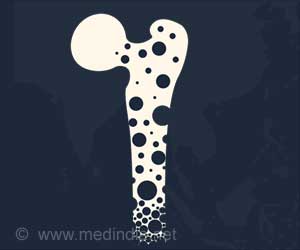A targeted radiotherapy technique for breast cancer is on trial in Britain. When it finally becomes available to patients at large, repeated sessions after surgery could be done away with.
A targeted radiotherapy technique for breast cancer is on trial in Britain. When it finally becomes available to patients at large, repeated sessions after surgery could be done away with.
The new method involves delivering a highly concentrated dose of treatment to patients when they have surgery to remove lumps.During the operation, surgeons remove the malignant tumour and then direct the X-rays, which are about five times the strength of a normal dose, straight into the affected area using a probe while the wound is still open.
This means the treatment is more accurate in targeting the tissue most at risk of turning cancerous. It uses a portable radiotherapy machine and takes 30 minutes.
Currently, women with breast cancer make between 25 to 30 additional visits to hospital following surgery to have radiotherapy over a period of up to six weeks. Some opt for mastectomies to avoid the extra stress and illness.
Trials with 1,350 women are nearing conclusion and leading surgeons say the results of the new technology are ‘very encouraging’.
Mo Keshtgar, breast cancer surgeon at the Royal Free Hospital in North London, where the treatment has been pioneered, said it will improve recovery times and survival rates.
Advertisement
‘With conventional radiotherapy, you are guessing the correct position. That involves a degree of error, but with this technique there’s no chance of that.
Advertisement
Keshtgar believes it could save the NHS between £20 million and £50 million each year because the number of outpatient radiotherapy appointments would fall.
He hopes the technique will be widely available late next year and that it will also bring about a fall in the number of mastectomies in the UK, Daily Mail reports.
Eileen O’Dwyer, 55, a school business manager from Crouch End, North London, was among those treated using the new technique after a lump was discovered in her right breast during a routine examination in April.
The mother of three said: ‘The alternative was having 25 or 30 radiotherapy sessions. But that would have been exhausting, as I would have had to travel to the hospital on a daily basis for six weeks.’
Source-Medindia
GPL/S













